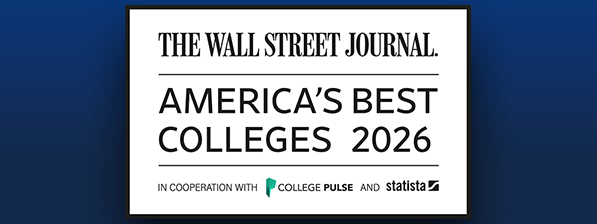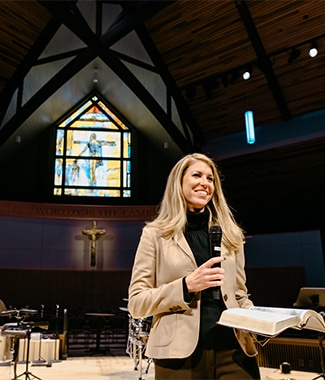
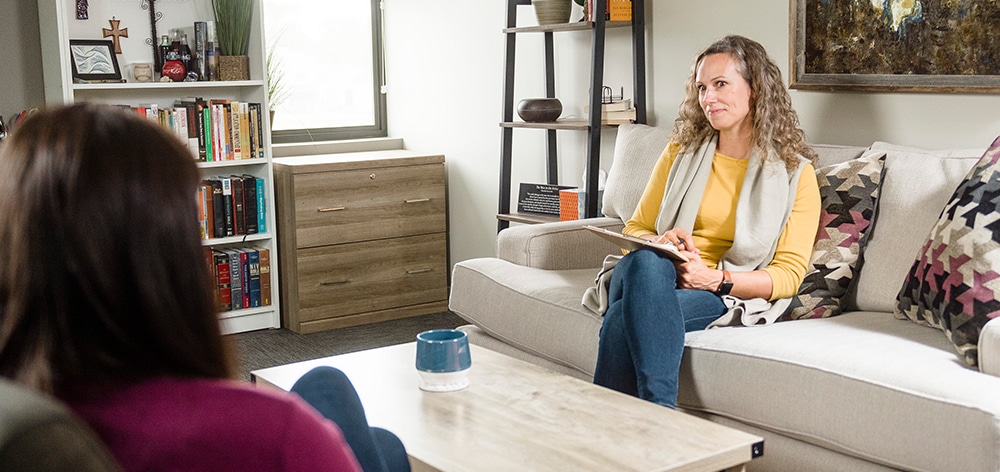
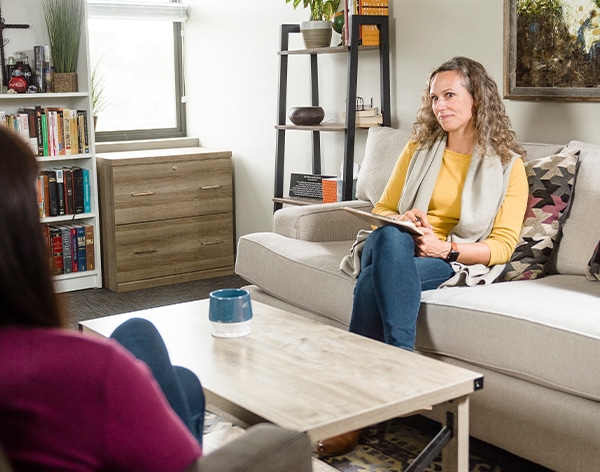
Master of Science in
Clinical Mental Health Counseling
Online
REQUEST INFORMATION
Loading...
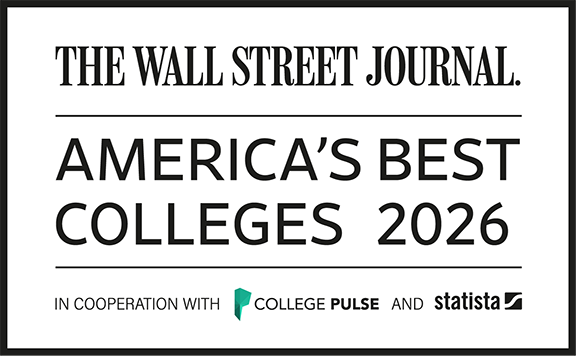
Fully Online
with Two In-Person Residencies
with Two In-Person Residencies
Transfer Friendly
Transfer up to 75% of your program credits
Transfer up to 75% of your program credits
Become A Licensed Professional Counselor with an M.S. in Clinical Mental Health Counseling Degree
You can help bring hope, healing, and wellness to your community with a Master of Science in Clinical Mental Health Counseling from Cornerstone University. This flexible, high-quality online program prepares you to become a Licensed Professional Counselor (LPC), offering support from graduation through licensure and into employment. Through a unique blend of scientific training, practical counseling skills, and a Christian worldview foundation, you’ll be prepared to serve others with purpose and compassion. Concentrations in Marriage and Family Therapy, Addictions Counseling, Christian Counseling, and Trauma Counseling allow you to choose pathways that fit your interests.
Benefits of the Clinical Mental Health Counseling Master’s Degree Program
Prepare to develop advanced clinical skills that equip you for real-world success in counseling settings in this 60-credit hour program taught by our experienced licensed counselors. Our program offers:
- Concentrations in Marriage and Family Therapy, Addictions Counseling, Christian Counseling, and Trauma Counseling allow you to choose pathways that fit your interests.
- Dual Licensure Track allows you to become a Licensed Professional Counselor (LPC) and Licensed Marriage and Family Therapist (MFT). Cornerstone University is one of the only schools in the country to offer such a degree.
- Supervised field experience allows you to apply foundational skills in a broad range of real-world applications as you work with clients at counseling sites.
- Three-day in-person residencies offer valuable opportunities to engage with faculty and peers, receive hands-on guidance, and grow professionally and personally.
- Personalized Tracks allow you to choose a course load that works with your life and personal goals. Choose from six credit hours per term, nine credit hours per term, or twelve credit hours per term based on your needs!
Influential Careers with a Master’s in Clinical Mental Health Counseling Degree
- Licensed Professional Counselor (LPC/LLPC)
- Mental Health Therapist
- Substance Abuse Counselor
- Marriage and Family Therapist
- Crisis Counselor
- Private Practice Counselor
- School-Based Mental Health Counselor
- Community Mental Health Counselor
- Faith-based or Church Counselor
- Behavioral Health Counselor
Your Next Steps
Review application requirements and take the first step by applying today.
- Application submission — (choose the Speciality Master’s degree application)
- Minimum 2.7 GPA from an accredited undergraduate college or university
- Two recommendations
- Resume
- Virtual interview with counseling faculty
Note: Students must maintain a 3.0 GPA and receive a B or higher in each course.
Learn more by scheduling an appointment with an admissions counselor. Call or text 616.816.5023.
